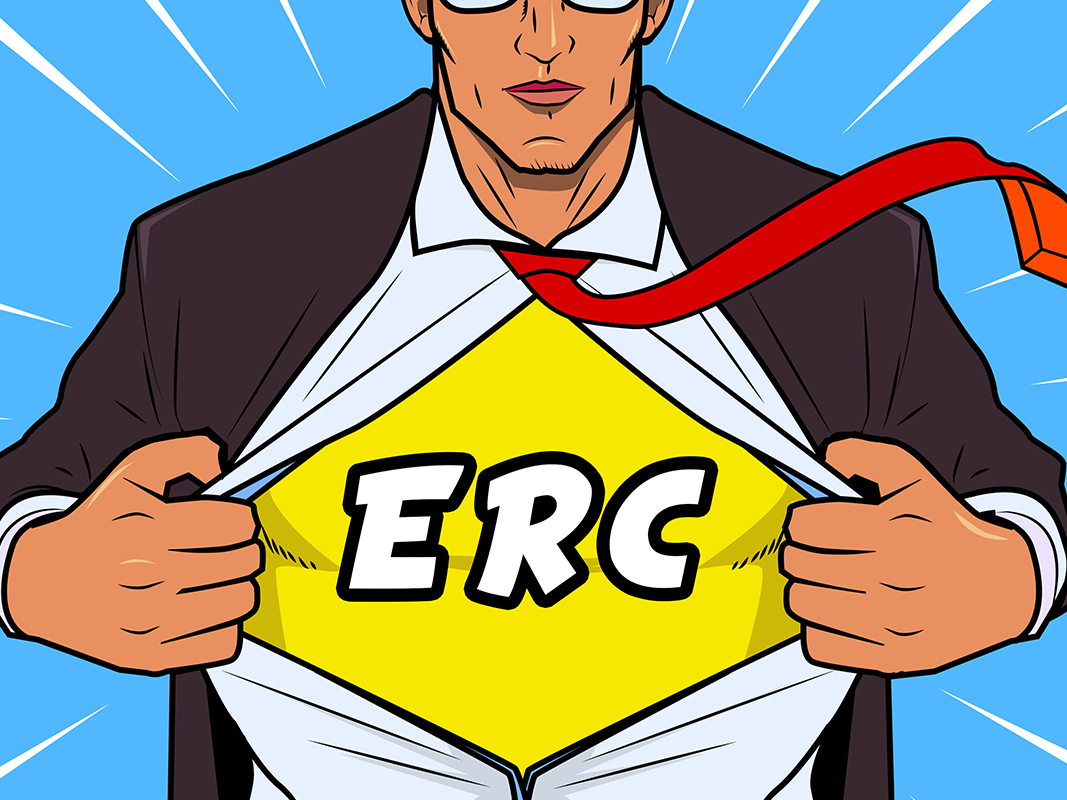
BUSINESS
ERC:
Hero Money for Business Owners from the COVID Era
BY: Gregg Amerman
The COVID-19 pandemic brought unprecedented challenges for businesses worldwide. Many struggled to stay afloat, leading to layoffs and economic turmoil. However, for the business owners who demonstrated resilience and kept their employees on payroll during this crisis, the Employee Retention Credits (ERC) is nothing short of hero money. This exciting program not only provides financial relief but also recognized the heroic efforts of these business owners. Let's delve into why ERCs became a lifeline and a badge of honor for business owners who prioritized their employees during the pandemic.
ERC was introduced in the Cares Act alongside the Economic Injury Disaster Loan (EIDL), and The Payroll Protection Program (PPP). At the time, the law did not allow for a business to take both PPP and ERC simultaneously, and because of the ease in which business owners could obtain PPP, that’s what the vast majority took advantage of. This meant that the ERC program would basically become unnoticed and unused.
However, fast forwarding to December 2020 and the release of the Consolidated Appropriations Act, the law changed and stated that if you received PPP, you could also receive ERC, with the understanding that during the ERC calculation process the PPP funds would have to be accounted for. In other words, a business cannot double dip those funds.
For numerous months, most businesses did not even know about the availability of ERC and as the word finally got out to main street businesses, accountants, CPAs, etc., without the proper knowledge and expertise informed many of their clients they wouldn’t qualify.
While these professionals more than likely had good intentions and were only setting out to protect their clients, unfortunately, this also meant that a lot of business owners would have misinformation and therefore potentially miss out on a substantial amount of money for their business.

What is ERC?:
- This is a tax credit program designed to “appreciate” small to medium size businesses who compensated their employees during 2020 and 2021.
- A business could potentially receive up to $26,000 per employee.
- This is not a loan and there are no specific restrictions or guidelines of how these funds can be utilized. It’s at the sole discretion of the business owner.
Who is Eligible:
- Any business that was operational in 2019 or prior and had less than 500 W-2 fulltime employees in 2019.
- It is also possible to receive ERC if a business started after February 15, 2020, but it would fall under different guidelines known as a “Recovery Startup”.
- You are eligible for ERC even though you received PPP money and had it forgiven. However, during the calculation process for ERC, your PPP loan forgiveness would have to be taken into account.
How Does a Business Qualify?
There are basically two tests, and you only need to pass one of the two tests to qualify.
The first test is the "Decline in Gross Receipts" test. A company that has a decline of gross receipts of 50% or more in any quarter of 2020 as compared to 2019 would qualify. And 20% or more in any quarter of 2021 as compared to 2019 would qualify.
While many businesses will qualify based on this test, many will not pass this test, yet still qualify for ERC because of the following alternative test.
The other way to qualify is by the "Full or Partial Shutdown" test, and that does not mean you physically had to be shut down. There are over 12,000 nationwide governmental orders/mandates at the local, state, and federal level that may have affected a business. Could be operationally, supply chain, suppliers, customer impact, travel restrictions, change in hours, cleaning restrictions, amongst numerous others. This simply means that under the ERC guidance, a company is allowed to break their business into income sectors from gross revenue. Any sector of the business or sectors that made up at least 10% of the quarterly revenue in 2019 but is down 10% or greater in any quarter of 2020 or 2021 is a sector that could potentially qualify. A sector is just giving a name to the various income streams a business receives, as a way to identify how the pandemic affected their revenue.
This “test” or aspect of the guidance is better known as a “more than nominal effect to a more than nominal portion” of the business operations.
The guidance related to this particular test can be found on IRS notice 21-20 that discusses a "more than nominal effect to a more than nominal portion" of the business operations.
https://www.irs.gov/pub/irs-drop/n-21-20.pdf

It is very important to truly know what the law allows and the huge opportunity that is available for companies. It’s understandable, that business owners are going to rely on the professionals they use every day, but ERC is a very technical and complex program that requires forensics accounting along with tax law. This handling of ERC requires its own unique specialized knowledge and expertise.
Jorns & Associates is the largest Accounting & Tax firm in the country that specializes in ERC. With a staff of around 400, including CPAs, Tax Attorneys, IRS Enrolled Agents as well as many other essential members, we have already assisted over 14,500 clients, qualify for over $7 billion in ERC. Schedule a no risk, no obligation consultation to determine if you are an excellent candidate for ERC. Click on LegacyERC.com to learn more and /or to see if you qualify for ERC!






